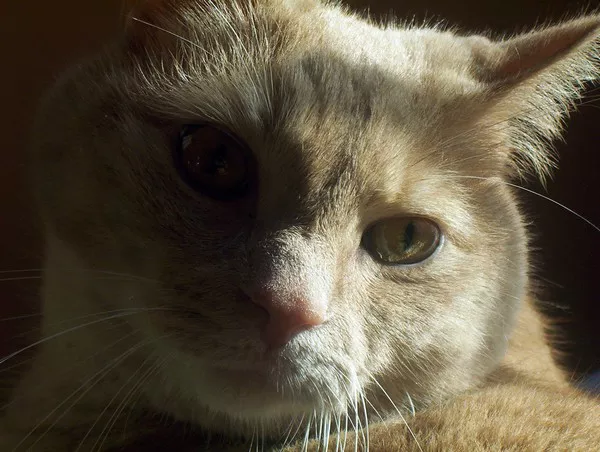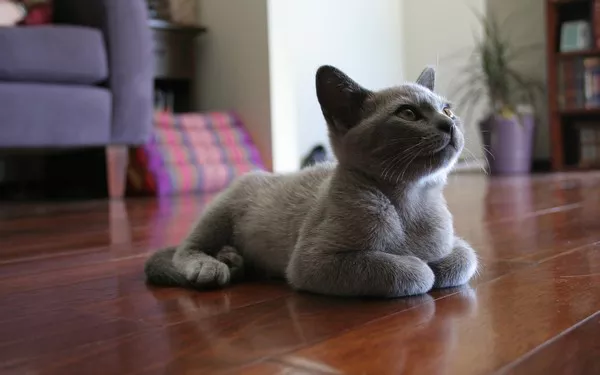Heart disease is a significant health concern for cats, often leading to serious complications if not managed properly. As a cat owner, understanding the dietary needs of a cat with heart disease is crucial for promoting their overall health and well-being. The right nutrition can help manage symptoms, support heart function, and improve quality of life. This comprehensive guide will explore the best dry cat foods for cats with heart disease, the nutritional components that support heart health, and practical tips for feeding and caring for cats with this condition.
Understanding Heart Disease in Cats
Types of Heart Disease in Cats
Heart disease in cats can be classified into several types, with the most common being:
Hypertrophic Cardiomyopathy (HCM): This is the most prevalent heart disease in cats, characterized by the thickening of the heart muscle, which can lead to heart failure.
Dilated Cardiomyopathy (DCM): Although less common in cats than in dogs, DCM involves the dilation of the heart chambers, impairing the heart’s ability to pump blood effectively.
Congenital Heart Disease: Some cats are born with heart defects that can lead to various complications.
Heartworm Disease: Caused by parasitic worms, heartworm disease can lead to severe heart and lung issues.
Symptoms of Heart Disease
Recognizing the symptoms of heart disease is essential for early intervention. Common signs include:
- Difficulty breathing or rapid breathing
- Coughing
- Lethargy or decreased activity level
- Weight loss or poor appetite
- Fainting or weakness
- Swollen abdomen due to fluid accumulation
If you notice any of these symptoms in your cat, it is crucial to consult a veterinarian for a proper diagnosis and treatment plan.
The Role of Nutrition in Heart Disease Management
Diet plays a vital role in managing heart disease in cats. The right nutrition can help reduce the workload on the heart, maintain a healthy weight, and provide essential nutrients that support heart function. A well-balanced diet tailored to the needs of a cat with heart disease can improve their quality of life and potentially extend their lifespan.
Nutritional Considerations for Cats with Heart Disease
Key Nutrients for Heart Health
When selecting dry cat food for a cat with heart disease, it is essential to consider the following nutrients:
Taurine: An amino acid critical for heart health, taurine deficiency can lead to cardiomyopathy. Ensure that the food contains adequate levels of taurine.
Omega-3 Fatty Acids: Found in fish oil, omega-3 fatty acids have anti-inflammatory properties and can help support heart health.
Low Sodium: Reducing sodium intake can help manage fluid retention and lower blood pressure, which is beneficial for cats with heart disease.
High-Quality Protein: Cats are obligate carnivores, so high-quality animal protein is essential for maintaining muscle mass and overall health.
Antioxidants: Vitamins E and C, along with other antioxidants, can help combat oxidative stress and support overall heart health.
Avoiding Harmful Ingredients
Certain ingredients should be avoided in the diet of cats with heart disease:
High Sodium Levels: Foods high in sodium can exacerbate heart disease and lead to fluid retention.
Excessive Carbohydrates: Cats have a limited ability to metabolize carbohydrates. Diets high in carbs can lead to obesity and other health issues.
Artificial Preservatives and Fillers: These can provide little nutritional value and may contribute to health problems.
The Best Dry Cat Foods for Heart Disease
Choosing the right dry cat food is crucial for managing heart disease. Here are some of the best options available on the market, specifically formulated to support heart health in cats.
Hill’s Prescription Diet c/d Multicare
Description: This veterinary-recommended diet is designed to support urinary health but also contains beneficial nutrients for heart health.
Key Ingredients: Chicken meal, corn gluten meal, and brown rice.
Nutritional Analysis: Approximately 30% protein, 14% fat, and low sodium content.
Pros:
- Contains taurine and omega-3 fatty acids.
- Formulated to reduce the risk of urinary stones, which can be beneficial for overall health.
Cons:
- Requires a veterinarian’s prescription.
Royal Canin Veterinary Diet Feline Cardiac
Description: Specifically formulated for cats with heart disease, this diet supports heart function and overall health.
Key Ingredients: Chicken meal, corn, and rice.
Nutritional Analysis: Approximately 32% protein, 18% fat, and low sodium.
Pros:
- Enriched with taurine and omega-3 fatty acids.
- Designed to support healthy cardiac function.
Cons:
- Available only through veterinary clinics.
Purina Pro Plan Veterinary Diets CN Critical Nutrition
Description: This diet is formulated for cats recovering from illness but also supports heart health through its nutrient profile.
Key Ingredients: Chicken, rice, and fish oil.
Nutritional Analysis: Approximately 34% protein and 20% fat.
Pros:
- High in protein and omega-3 fatty acids.
- Supports overall recovery and health.
Cons:
- Requires a veterinarian’s prescription.
Blue Buffalo Natural Veterinary Diet
Description: This diet is designed for cats with various health concerns, including heart disease.
Key Ingredients: Deboned chicken, chicken meal, and brown rice.
Nutritional Analysis: Approximately 32% protein and 15% fat.
Pros:
- Contains taurine and omega-3 fatty acids.
- Made with high-quality ingredients and no artificial preservatives.
Cons:
- May be harder to find in some areas and requires a veterinarian’s recommendation.
Wellness CORE Grain-Free
Description: A high-protein, grain-free formula that supports overall health, including heart health.
Key Ingredients: Turkey, chicken meal, and salmon meal.
Nutritional Analysis: Approximately 38% protein and 16% fat.
Pros:
- Rich in omega-3 fatty acids and free from grains.
- High-quality protein sources support muscle maintenance.
Cons:
- Some cats may prefer wet food over dry.
Feeding Tips for Cats with Heart Disease
Establishing a Feeding Schedule
Consistency is vital when feeding cats with heart disease. Establish a regular feeding schedule that includes multiple small meals throughout the day. This approach can help manage weight and prevent overeating.
Monitoring Portion Sizes
Pay attention to portion sizes and follow the feeding guidelines provided on the cat food packaging. Adjust portions based on your cat’s weight, activity level, and overall health.
Encouraging Hydration
Cats with heart disease need to stay well-hydrated. Ensure that fresh water is always available. Consider incorporating wet food into their diet to increase moisture intake.
Consulting Your Veterinarian
Regular veterinary check-ups are essential for managing heart disease. Your veterinarian can help monitor your cat’s condition, adjust their diet as needed, and provide guidance on managing heart health.
Monitoring Your Cat’s Health
Regular Weigh-Ins
Monitor your cat’s weight regularly to ensure they maintain a healthy weight. Weight loss or gain can indicate changes in health status and may require dietary adjustments.
Observing Behavior and Activity Levels
Keep an eye on your cat’s behavior and activity levels. Changes in energy levels, appetite, or behavior can signal health issues that require attention.
Recognizing Symptoms of Heart Disease
Be vigilant for any worsening symptoms of heart disease, such as difficulty breathing, coughing, or lethargy. If you notice any concerning signs, consult your veterinarian promptly.
Common Misconceptions About Cat Nutrition and Heart Disease
All Cats Can Eat the Same Food
One common misconception is that all cats can thrive on the same diet. Cats with heart disease have specific nutritional needs that differ from healthy cats. It is crucial to select food tailored to their condition.
Grain-Free Diets Are Always Better
While grain-free diets can be beneficial for some cats, they are not necessarily the best choice for cats with heart disease. The focus should be on high-quality protein and essential nutrients rather than eliminating grains altogether.
Supplements Are a Replacement for a Balanced Diet
While supplements can support heart health, they should not replace a balanced diet. It is essential to provide complete nutrition through high-quality cat food formulated for heart health.
Conclusion
Managing heart disease in cats requires a thoughtful approach to nutrition. The right dry cat food can support heart health, improve quality of life, and help maintain a healthy weight. By understanding the nutritional needs of cats with heart disease and selecting high-quality food options, you can play a vital role in your cat’s health and well-being.
Regular veterinary check-ups, monitoring weight and behavior, and providing a consistent feeding schedule are essential components of managing heart disease. With the right care and nutrition, cats with heart disease can lead happy, fulfilling lives. Always consult your veterinarian for personalized advice and recommendations tailored to your cat’s specific needs.
Related topic:



























